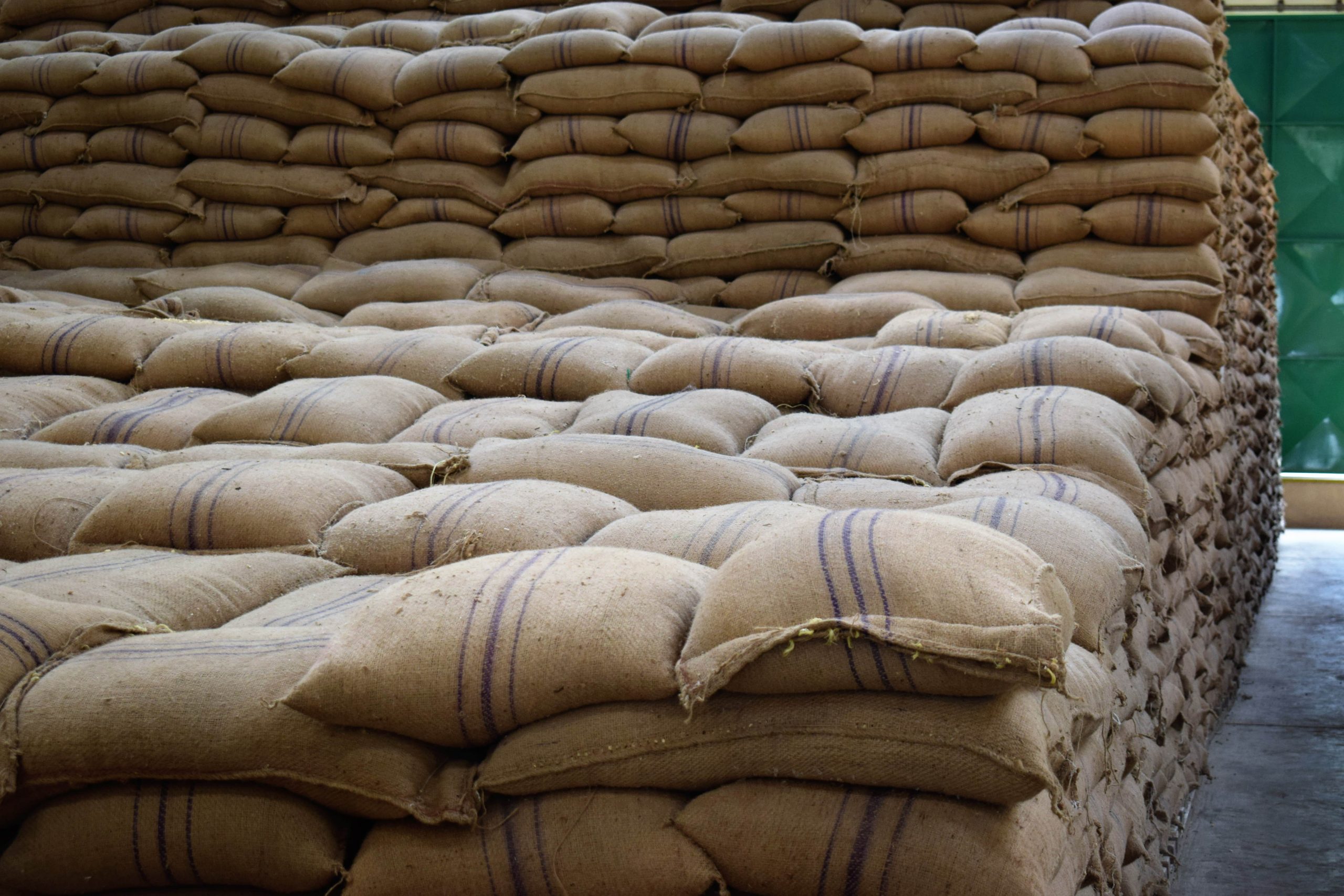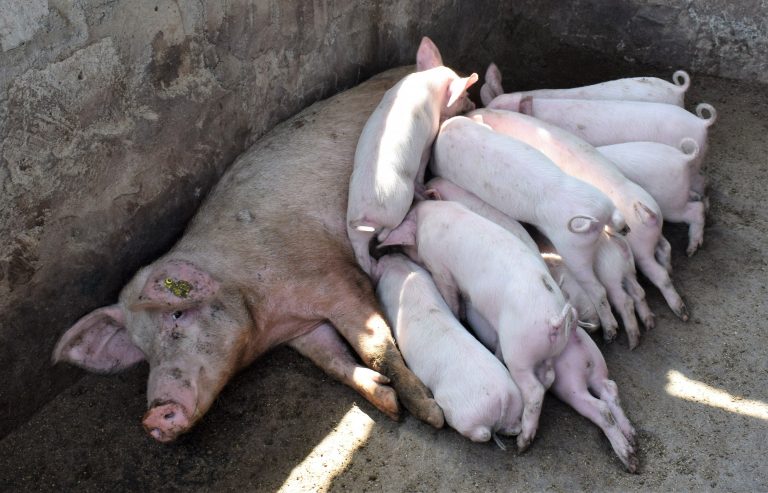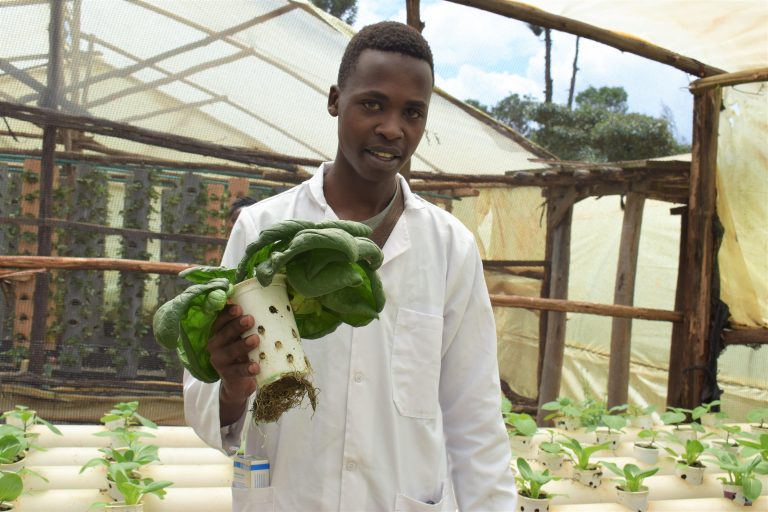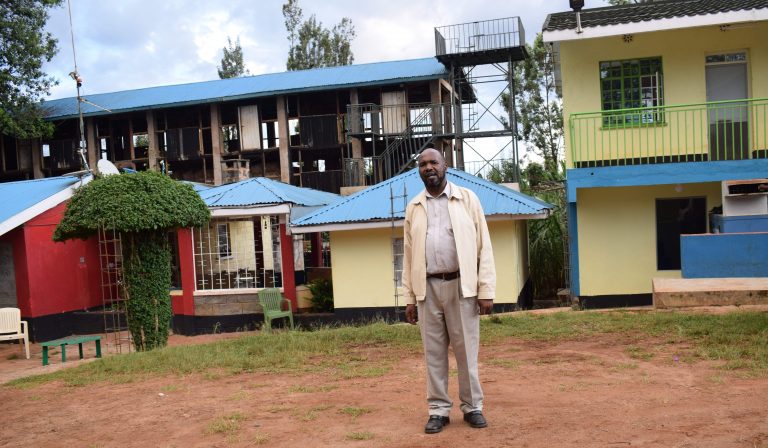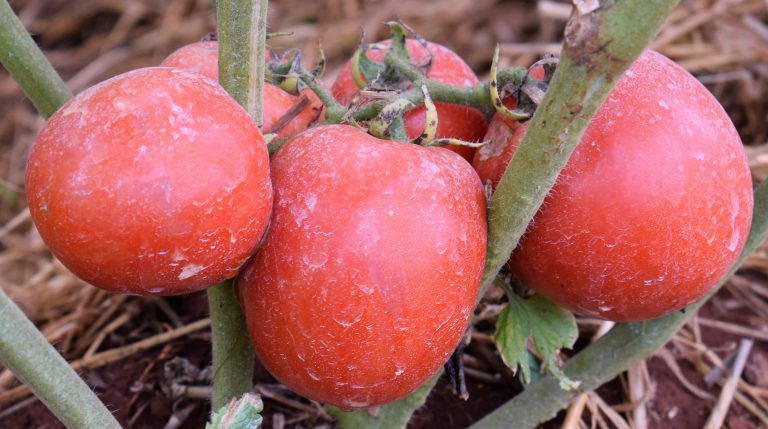By Kimuri Mwangi
At the recently concluded Financing Agri-food Systems Sustainably Conference (FINAS 2025) in Nairobi, the recurring challenge of limited access to funding for SMEs and the youth dominated discussions. Delegates repeatedly highlighted the lack of collateral as a major barrier preventing these groups from securing financial support.
Kilimo News writer Kimuri Mwangi engaged Jonathan Tseelon, the Group CEO of Avenews and Nancy Kinyanjui, the Managing Director of Avenews Kenya, on how the fintech company is approaching agriculture financing using a different model.
Let’s start by knowing what Avenews is.
Jonathan Tseelon, Group CEO, Avenews: Avenews is a Fintech company that assists agri SMEs with financing. We do it in a quite innovative way, taking a different approach than the current financing, which is provided in the Agri sector currently in Kenya. Our approach is based on value chain financing rather than providing traditional financing or micro financing.
We serve a layer, which is right in between businesses that are eligible for traditional financing and the businesses that couldn’t get micro financing. We found out there is a huge layer in the middle of underserved agribusinesses which do not fit into any of these buckets. They’re excluded from traditional financing due to the requirements and the need for collateral.
They need to pledge land or any other type of assets, and yet the micro financing is not fit for them because the amounts are too low, and the tenures are too short. Most of the financing gap that everybody is talking about in the Agri sector is centred on this big layer that we’re trying to serve.
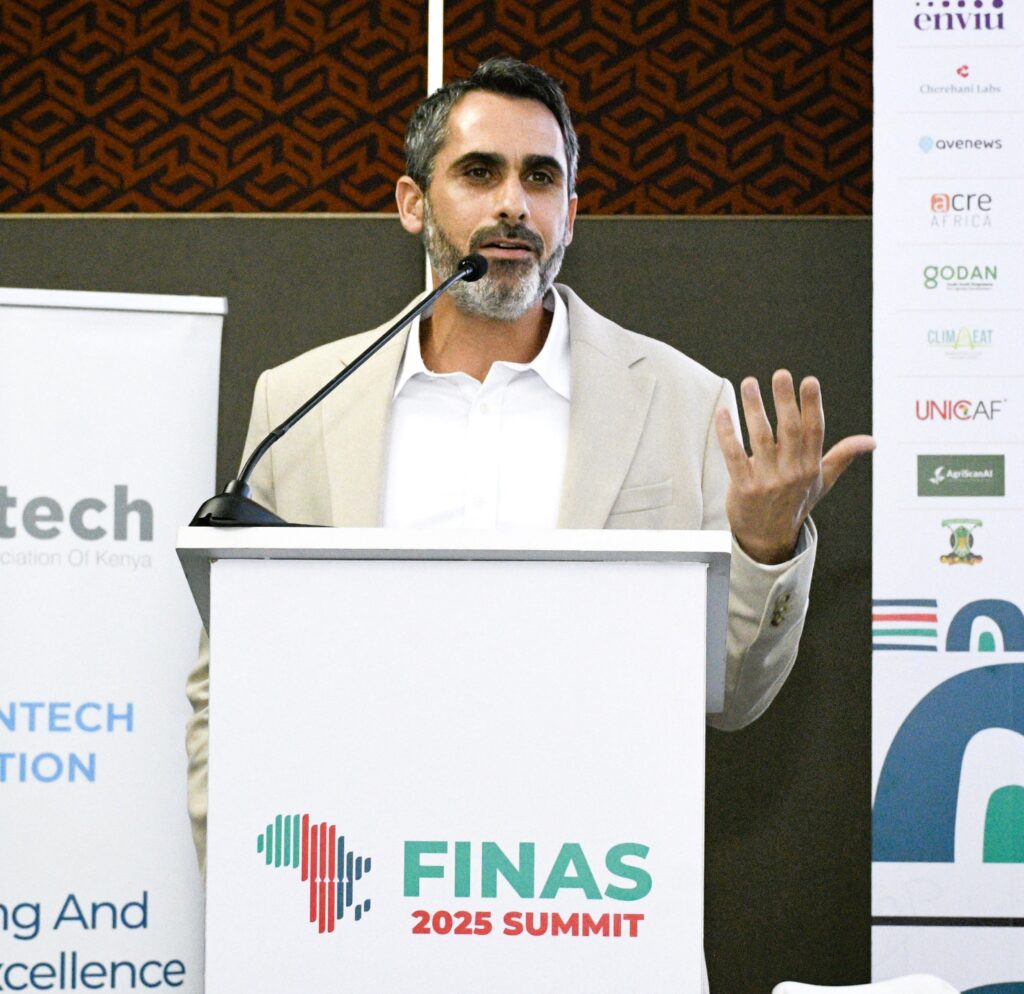
What are you doing differently from others in the same sector?
Our approach is based on data, so we look at the data as the collateral.
This way, these businesses can generate the collateral they need in order to get the financing. The data we use is just the normal data that any business which is operational generates, which means the transactions in the business. We look at the invoices, purchase orders, cash cycles, and payment history to other financial institutions.
This is data that is generated through the normal course of a business. The businesses don’t need to do anything special in order to generate the data that we take as collateral. They just need to share it.
If they agree to share it and it is in their best interest, we can provide them with the finance they need. The good thing about it is that they can build it up. Even if they don’t have as much data, let’s say, like a relatively new business by youth going into the agricultural sector.
They can generate that data as they go along and as they generate more and more transactions. The more data we get, the more capital we can provide to that business. We grow together with them. We look at it as a partnership, and at the end of the day, we make sure that the transaction is profitable for the business that works with us. If a business buys stock and then sells it, they have a profit margin. The financing or the cost of the financing needs to be considered when looking at the profit of that business. That’s what we do. We make sure the financing that we provide is sustainable, something that can allow the business to grow and get more and more transactions.
In short, you are saying that agripreneurs who keep records are the ones who can benefit easily?
At the end of the day, when a business keeps records of its history and of its transactions, we use those records in order to evaluate the specific transactions that need the extra cash.
A good example is one of our products, the Agri Supplier financing.
With this product, if a business sells, let’s say to a big buyer like Carrefour or Quickmart or any other supermarket, they usually pay after 30 to 60 days. Now, the transaction is profitable, but the cash flow is negative because the new business doesn’t have the cash. It needs the cash to buy stock and sell it to the supermarket.
We can get in there and provide the cash based on the invoice that they issue to that buyer. So, once they get the stock and deliver it, we can give them the immediate cash they need to pay their suppliers. This way, the business can roll on, and it can go on to the next transaction. Otherwise, that business would need to wait until it gets paid to have more money to buy more stock and to sell more stock. #
How is the data turned into collateral?
Everything goes into our modules, which are technology-based. We use artificial intelligence (AI), like Machine Learning (ML). (Machine learning is a subfield of artificial intelligence that focuses on enabling computers to learn from data without explicit programming. Essentially, it allows systems to identify patterns, make predictions, and improve their performance over time as they are exposed to more data.)
Everything goes in there, and then that enables us to provide the finance at the end of the day. Especially if it’s a new business owned by the youth or others, we give them guidance so they will know what they need to do in order to generate more data, which is high-quality data. If they generate it and they work the way they should in order to run their business, their limits with us are going to increase, and they’re going to be eligible for more money. They’ll be able to grow their business even more, so it’s kind of a snowball, and it’s a win-win, as I said at the beginning.
How do farmers benefit from all this?
Even though we provide finance to the businesses that buy from farmers, we do not provide the finance directly to the farmers. The farmers end up profiting from it because our client pays on time, and they can negotiate for better prices. When we finance the layer above the farmers, the money ends up in the hands of the farmer because these businesses can buy more, they’re able to stock up on more goods, like if we’re talking about the grain industry. We see every day that farmers end up benefiting from our approach.
Data is very sensitive. How do you secure it?
We’re 100% compliant with all the local regulations. We work under the guidance and the regulations of the data commissioner, CBK, and every other regulator involved in these fields.
The data is not shared outside our organisation, and we just use it in order to assess the creditworthiness and the credit limits of our clients with their consent.
We acknowledge the fact that some businesses misuse data, and we know that trust is something we need to build and that the burden of proof is on us, and that’s why we do it step by step. Our clients stay with us for a long time, and the longer they’re with us, the more they agree to share, and then we can provide them with better services, better terms, and better limits.
How much have you committed to financing the agriculture sector in Kenya this year?
We committed to disbursing Kshs 2.5 billion in 2025 to the agriculture sector. This means that at the end of the day, more money is going to flow into the value chains, and that would translate into more transactions. More transactions mean that money flows around faster, which means that the money at the end of the day goes down to the farmer because they’re able to sell more.
And as the demand increases, the prices become more favourable and the negotiating powers of the parties in the value chain are better equalised. It kind of eliminates a lot of the market failures that we currently see that create this gap.
How will that impact the country’s GDP?
Now, with Kenya specifically, a huge percentage of the GDP is based on agriculture. When more money goes into the agri-sector, the immediate result is that the GDP increases and it’s better distributed from the small businesses up to the big businesses, and everybody ends up profiting from more money going in there. At the end of the day, it’s about the efficiency of the value.
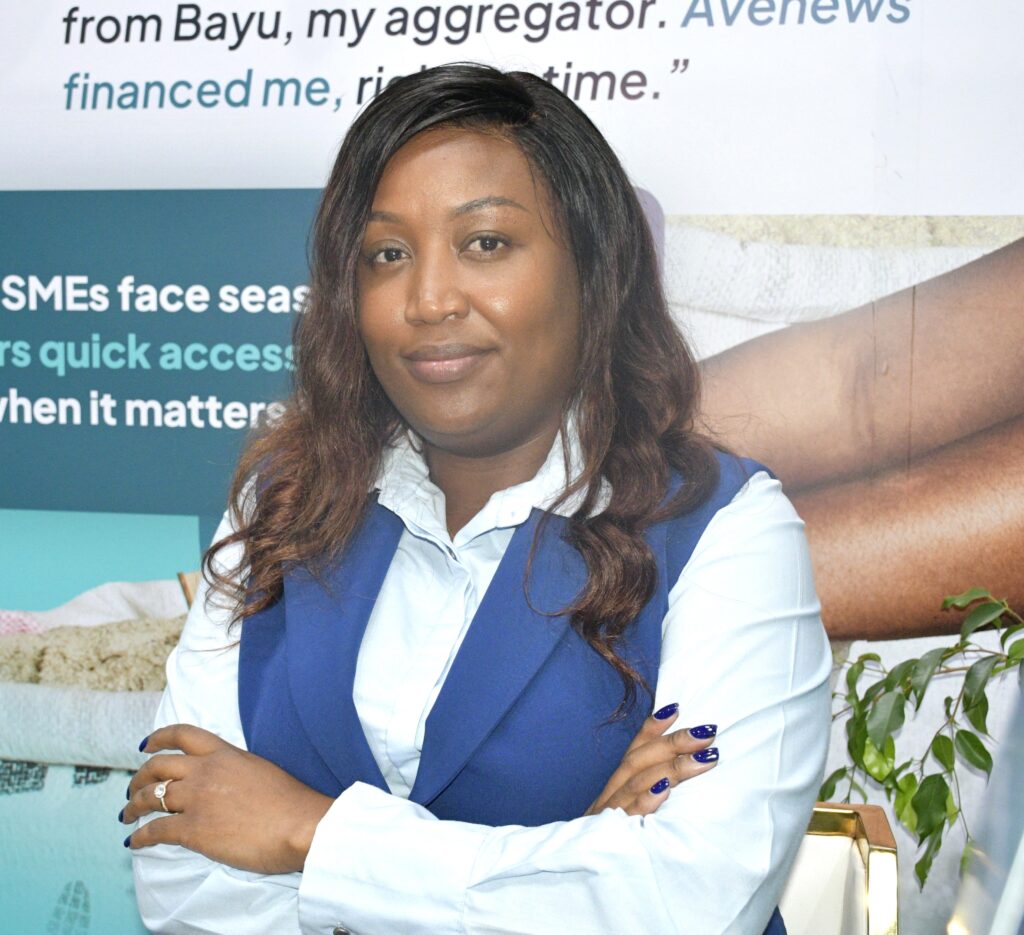
What is your strategy for implementing this model in Kenya?
Nancy Kinyanjui, the Managing Director of Avenews Kenya: We are very big on partnerships. It’s very hard for one player to actually sort out the financing gap in Africa, so we believe that all actors have to come together. That’s the reason why we’re very keen on creating partnerships, including with the government.
So, we’ve created partnerships with Kirinyaga County, and one of the reasons for that is to support the cooperatives, especially those along the avocado supply chain. Supporting the value chain and the cooperatives ensures that the farmer is getting timely payments, reducing post-harvest losses, and has timely access to the markets. We are also supporting the avocado oil processors to be able to buy more avocados from the farmers.
Are you engaging the counties?
We are currently having active conversations with the county governments to ensure that we have access to the cooperatives that we can support through our financing solutions, to ensure that everyone, every actor in the supply chain, is supported.
Who else are you engaging?
We are also working with the Kenya Livestock Marketing Council to support the livestock trading supply chain and the meat supply chain.
We are working with manufacturers of agrochemicals, and one of the partners we have is Farm Fix and Sustainable Management Services, again, to make sure that the supply chain in the agrochemical industry is also supported. We do work with distributors as well, and one of our key partners, especially in Kisii County, is Enochem Agrovet Ltd, and one of the ways that we’ve been doing that is holding events with these distributors and manufacturers.
The reason we are doing that is bringing in all the ecosystem players, especially the stockists, because we want to be on the ground to listen to their pain points and be able to know how we can support them and tailor our products to fit the needs that they have in the market.


